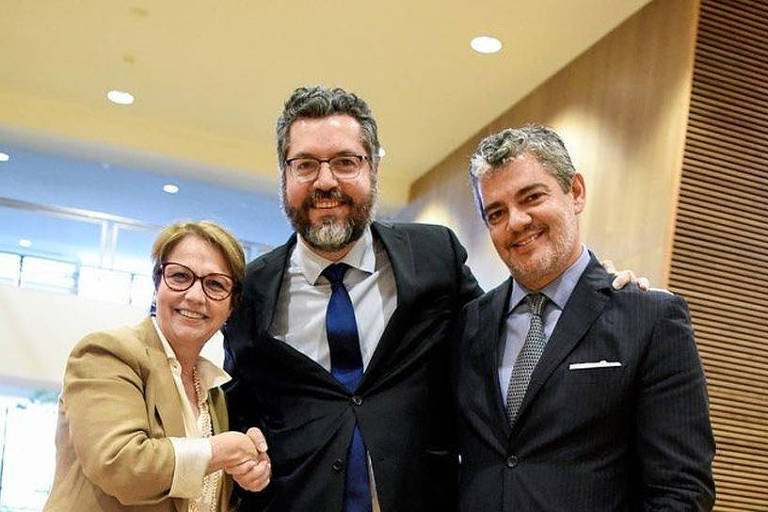The agreement between Mercosur and the European Union made history, and it's the first accomplishment of the Jair Bolsonaro government. But it was 20 years of negotiations that sealed the deal and not Bolsonaro's administration. Politically it is a trophy that the president always display-- primarily because the Itamaraty worked hard to accelerate the negotiations in recent months.
It almost didn't happen. The verbal incontinence of the president and General Augusto Heleno, chief of the Office of Institutional Security, threatened to abort the announcement the day before when they received European criticism of Brazil's management of the environment.
Diplomats told Folha on background that they were afraid the agreement wouldn't happen. The delegation in Osaka patched it up, by rescuing the canceled meeting with French President Emmanuel Macron and turning it into a photo op.
The agreement, however, was already wrapped up before the confusion on Thursday (27). But now reality sets in. No such deal comes into effect overnight; however, it immediately serves political and electoral interests.
The same political problems that briefly threatened the agreement's announcement will be present in the years that follow. There is no reliable estimate, but diplomats say it will be two or even five years until the agreement comes into force.
The agreement must be approved by the Mercosur and EU councils, the bloc parliaments, and especially the legislature of all 32 countries involved (still counting the UK, which is leaving the European club).
If it is easy to think that this will happen here in South America, the political landscape changes a lot when one looks at Europe. Today the continent is indeed dominated by central and center-right governments, which theoretically facilitates the life of a free trade agreement.
Like Macron's empty threat, since the Bolsonaro government has backed away from the idea of leaving the Paris climate deal, it is clear that political colors say little. Or they can say a lot: in Sweden, the Green Party environmentalist is part of the coalition that governs the country, and may well veto the EU-Mercosur agreement for the same reasons that the French president had suggested.
Moreover, there is a whole agenda defended by Bolsonaro that can stir up European rashes, such as his fight against the politically correct and the so-called gender ideology, as well as more objective issues such as demarcations of indigenous lands that the president sees as excessive.
Translated by Kiratiana Freelon
